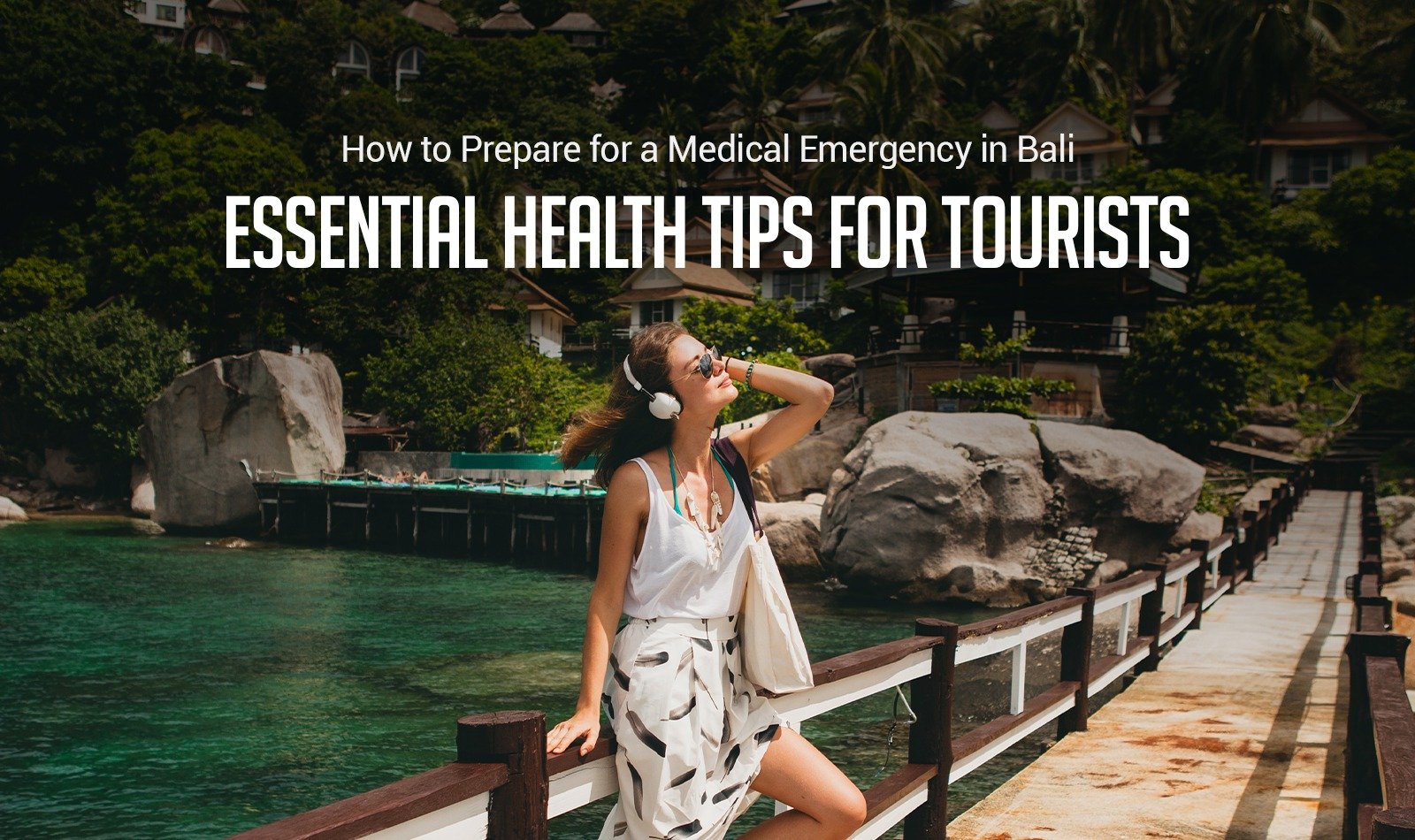
Bali with its emerald islands, majestic beaches, and colorful culture is every holiday maker’s paradise. With all the thrill of getting around this island paradise, one should take a few precautions towards maintaining good health and being equipped for any kind of medical emergencies. Whether you are surfing in Uluwatu, climbing Mount Batur, or simply lounging by the pool, a plan can make or break you. Some of the following vital health tips for Bali tourists will assist you in staying safe and getting the best out of your trip.
Contents
- 1 1. Find out about Bali Healthcare Services for Tourists
- 2 2. Get the Right Vaccinations Before Traveling
- 3 3. Stay Hydrated and Avail IV Therapy in Bali
- 4 4. Pack a Travel Health Kit
- 5 5. Food and Water Safety Arrangements
- 6 6. Know How to Access Emergency Medical Care in Bali
- 7 7. Buy Extensive Travel Insurance
- 8 Final Thoughts
1. Find out about Bali Healthcare Services for Tourists
Before your visit, familiarize yourself with healthcare in Bali. The island has a mix of public hospitals, private clinics, and medical centers that meet international standards. Among the most well-known are BIMC Hospital and Siloam Hospitals, which have expertise specifically for foreigners and expats. Such centers typically have English-speaking staff and provide decent care.
During emergencies, knowing your destination ahead of time can prove to be very helpful in saving valuable time. In Bali, have the list of clinics and hospitals near you. For cases of dehydration or food poisoning, small clinics like Bewell Bali in Canggu are within reach for immediate and effective treatment.
2. Get the Right Vaccinations Before Traveling
One of the most important preparations for your journey is staying up to date on Bali traveler vaccinations. While no shots are actually required for traveling to Indonesia, the Centers for Disease Control and Prevention (CDC) recommend typhoid, hepatitis A, and tetanus vaccinations. If you will be traveling out into the countryside or be in the sun extensively, include rabies and Japanese encephalitis vaccines as well.
Get your vaccination requirements sorted out with your doctor at least 4-6 weeks before your vacation. Being proactive towards preventive healthcare will minimize the chances of falling ill during your vacation.
3. Stay Hydrated and Avail IV Therapy in Bali
The tropical heat in Bali can be intense, especially if you’re not accustomed to high humidity. Dehydration is a common issue among tourists, particularly after long days of sightseeing or indulging in cocktails by the beach. To avoid falling ill, drink plenty of bottled or filtered water throughout the day. Avoid tap water, even for brushing your teeth, as it may contain harmful bacteria.
If you do happen to get dehydrated and weak, IV tourism in Bali is a fun and possible choice. Many of the wellness centers and clinics, even some of the ones in Seminyak and Canggu, offer IV drips that replenish fluids, electrolytes, and vitamins. These can help alleviate dehydration, jet lag, or a hangover.
4. Pack a Travel Health Kit
A full first-aid kit is a must for any journey, and Bali is no different. Bring essentials such as painkillers, anti-diarrheals, antihistamines, and dehydration salts. Do not leave home without sunscreen, insect repellent, and antiseptic cream to avoid sunburns, mosquito bites, and small cuts and scrapes.
If you’re on prescription, take sufficient to last throughout your holiday period with you as well as a duplicate of the prescription. Bali has pharmacies aplenty but remember they’re not always on the same dosage or brand.
5. Food and Water Safety Arrangements
Bali is a haven for food lovers, offering everything from traditional Balinese dishes to trendy vegan cafes. However, foodborne illnesses can be a concern if you’re not cautious. Stick to reputable restaurants and avoid street food unless it’s freshly cooked and served hot. Wash your hands frequently or use hand sanitizer, especially before meals.
When it comes to beverages, opt for bottled or sealed drinks. Ice in tourist-heavy areas is generally safe, but it’s better to err on the side of caution if you’re unsure.
6. Know How to Access Emergency Medical Care in Bali
In the event of a severe illness or accident, dial 112 or 118 for an ambulance. Keep in mind that response times will also be influenced by your location. Purchasing travel insurance covering medical emergency treatment while in Bali is highly recommended and can cover hospitalization charges, evacuations, or intensive treatments.
For less urgent cases, private hospitals and walk-in clinics are typically the most appropriate option. Facilities like Bewell Bali provide full treatment for minor trauma and everyday diseases and are therefore the most convenient option for visitors.
7. Buy Extensive Travel Insurance
Travel insurance is non-negotiable when visiting Bali. Medical bills can run quickly out of control if you find yourself hospitalized or have to be evacuated overseas to receive specialist treatment. Ensure that your policy includes emergency medical treatment, accidents, and adventure activities like diving or trekking.
Travel insurance gives you peace of mind so you can enjoy yourself without worrying about what’s most likely going to be down the line on the money trail.
Final Thoughts
Though Bali in general is a safe destination, medical emergency preparedness is good travel responsibility. With these health tips for travelers in Bali—having knowledge of healthcare facilities, hydration, and a travel health kit—you can reduce risks and have a worry-free, hassle-free vacation.
Remember, prevention is better than cure. Be cautious when you must be, listen to your body, and don’t wait for professional help if you’re not feeling well. With a little planning, you’ll be able to enjoy the best of the magic of Bali while keeping your health and safety at the top of your list of priorities. Travel safely!

